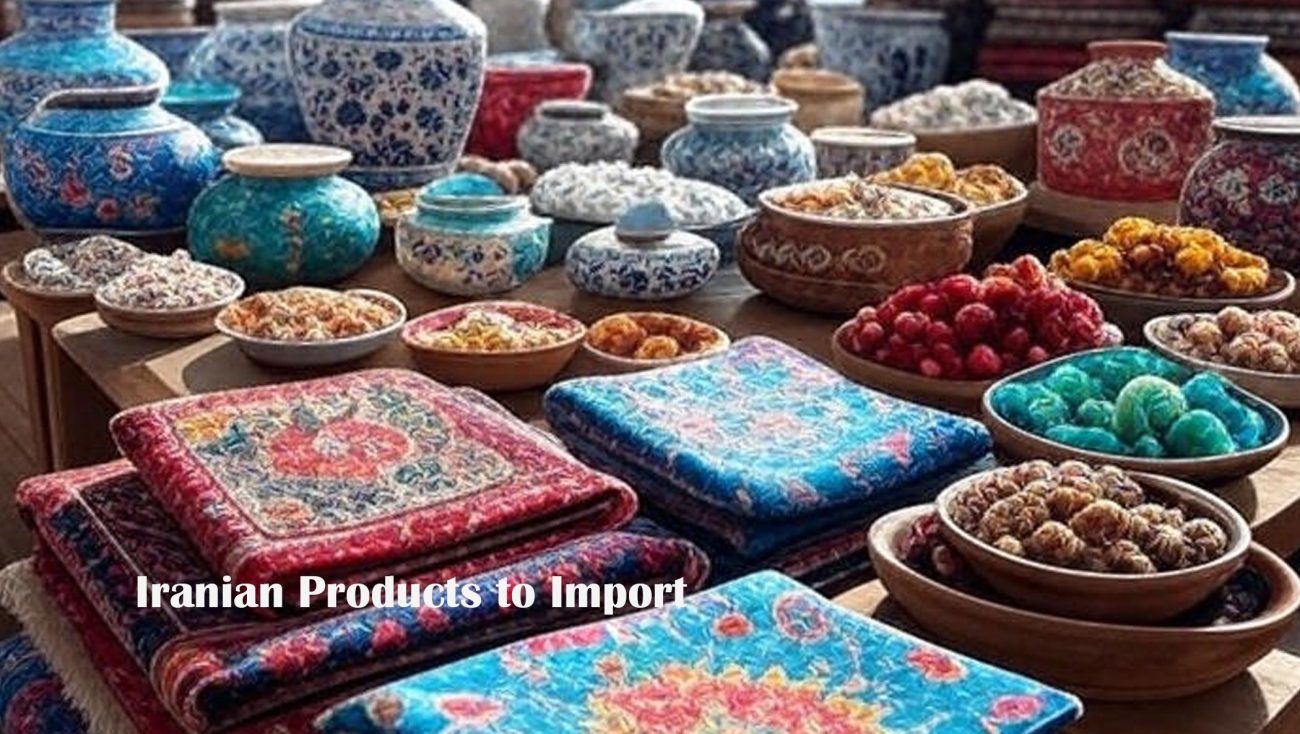How to Trade with Iran: A Practical Guide for Global Importers

How to Trade with Iran: A Practical Guide for Global Importers
Introduction
As global markets seek new sources of quality and affordability, Iran has emerged as a unique destination for importers. Despite geopolitical complexities, international buyers are increasingly discovering the value, diversity, and competitiveness of Iranian goods. From bitumen and petrochemicals to agricultural products, tiles, and machinery, Iran offers massive opportunities for smart traders who know how to navigate the system.
This guide provides a comprehensive overview of how to trade with Iran effectively and safely.
🧭 1. Why Iran? Key Advantages for International Buyers
Iran isn’t just a country with rich natural resources—it’s a massive industrial ecosystem with skilled manufacturing, competitive labor, and strategic access to global shipping lanes.
Here are some reasons to consider sourcing from Iran:
- Diverse product base: bitumen, chemicals, saffron, food, stone, cement, tiles, medical products, and more.
- Affordable pricing: Iranian producers often offer better rates than China, India, or Gulf suppliers.
- Custom production: many Iranian suppliers offer private labeling and OEM services.
- Strategic location: land, sea, and air routes to Europe, Asia, and Africa.
🌐 2. Is It Legal to Trade with Iran?
This depends on your location and the product category. Here’s what to know:
✅ Legal for most countries:
Countries like India, China, Turkey, UAE, Russia, and many in Africa and South America regularly trade with Iran. European buyers can also work with Iran, though some restrictions may apply.
⚠️ U.S. Sanctions:
If you’re in the U.S. or doing business in USD or through U.S.-based banks, you must be cautious. But many non-U.S. buyers legally trade via third-party intermediaries.
Always consult a local trade attorney to clarify the legal position based on your country and product type.
🔍 3. How to Find Reliable Iranian Suppliers
Finding a trustworthy supplier is the first step in any successful trade. For Iran, your best channels include:
A. Use Verified B2B Platforms
- Platforms like Vitfa.com focus specifically on Iranian suppliers.
- You can browse categories like bitumen, tiles, medical supplies, or chemicals and request quotes directly.
B. Attend Trade Fairs
Look for expos and fairs that either take place in Iran or feature Iranian companies abroad (e.g., Dubai, Istanbul, Guangzhou).
C. Local Sourcing Agents
These professionals handle quality control, inspection, and communication with the suppliers. They can help you avoid language and cultural barriers.
💸 4. How to Handle Payments
Due to limited banking connections, here are the most common payment methods:
- T/T via third-party accounts in countries like UAE or Turkey
- Crypto: Some Iranian businesses accept USDT, Bitcoin, or other stablecoins
- Cash against documents (CAD) or Letter of Credit (LC) via partner countries
- Barter deals (especially in bulk trade)
Important: Avoid paying large amounts upfront unless you’ve verified the supplier and contract terms.
🚚 5. Shipping from Iran: What You Need to Know
Iran has several well-equipped ports for international shipping, including:
- Bandar Abbas (Shahid Rajaee Port)
- Bandar Imam Khomeini
- Khorramshahr
- Bushehr and Chabahar
You can choose between:
- FOB (Free on Board)
- CFR (Cost and Freight)
- EXW (Ex Works)
- Or re-export via the UAE or Oman for more flexibility
Documents Required:
- Commercial invoice
- Packing list
- Certificate of origin
- SGS or inspection report (optional)
- Bill of lading or airway bill
🔐 6. How to Minimize Risk in Iranian Trade
Iranian suppliers are often legitimate and professional—but like any emerging market, risk management is essential:
- Start small with sample or trial orders
- Use platforms like Vitfa that filter serious suppliers
- Request videos, real-time photos, and live calls
- Draft contracts with clear delivery and payment terms
- Work with inspectors or quality control services if needed
📈 7. What Industries Offer the Best Opportunities?
Iran’s top export sectors include:
| Industry | Top Products |
|---|---|
| Bitumen & Oil Derivatives | 60/70 penetration bitumen, oxidized bitumen, base oil |
| Food & Agriculture | Saffron, pistachios, raisins, dates |
| Building Materials | Tiles, ceramics, stones, cement |
| Industrial Equipment | Pumps, valves, compressors, laboratory tools |
| Medical Supplies | Face masks, gloves, disinfectants, hospital equipment |
🤝 8. Cultural Tips for Doing Business with Iranians
- Relationships matter: Trust and long-term connection are more important than price alone.
- Communication style: Be polite, flexible, and respectful.
- Negotiation: Leave room for some negotiation—it’s expected.
- Follow up: Regular follow-ups and WhatsApp chats are common in business.
🌍 9. Re-Export & Offshore Models
If your country has restrictions, many buyers operate via UAE-based companies or use offshore companies for safer logistics and banking. Iranian products are often shipped to:
- Dubai (Jebel Ali Port)
- Oman (Sohar Port)
- Turkey or Iraq, then forwarded
✅ Conclusion: Is It Worth Trading with Iran?
Absolutely—if done right.
With the right strategy, platforms like Vitfa, and some caution, Iranian trade offers excellent profit margins and high-quality sourcing for global buyers.
🔗 Start Trading Today
Visit Vitfa.com to:
- Explore thousands of verified Iranian suppliers
- Request quotes directly
- Get assistance with shipping and documentation
- Reduce your sourcing costs while maintaining product quality
call us for any orders: +989105425294





